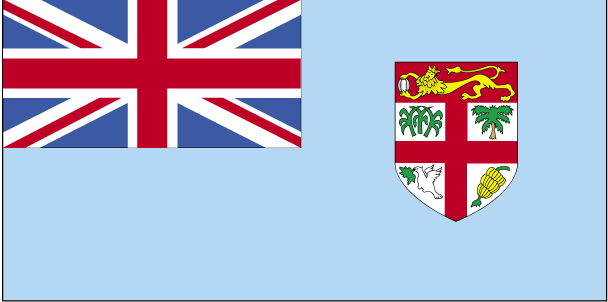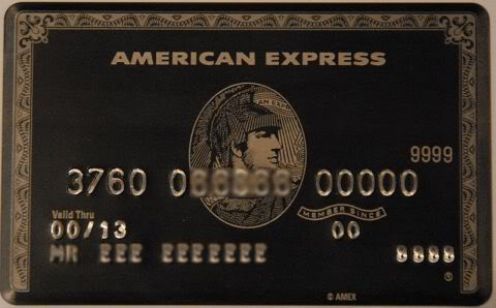Happy 41st birthday to our Fijian readers. Fun Fiji facts:
- Fiji has about as many people as greater Hartford, in an area slightly bigger than Connecticut and Rhode Island combined.
- Its nearest neighbor is the Wallis & Futuna Islands. Continuing with the theme, they’re about as far away from Fiji as Hartford is from Ottawa.
- The prime minister’s name is Frank “Shy Boy” Bainimarama.
- The Fijian dollar is worth around 53¢. (Not 53 Fijian cents. 53 American cents. Don’t be stupid.)
Now, onto the Carnival: an assortment of personal finance blog posts collected and inspected over the past few week. If you want to submit yours to next week’s Carnival, click here. But we’d prefer that you’d just read. Therefore:
Steve Zussino at Canadian Personal Finance debunks the common myth that the U.S. government recognizes something called “dual citizenship”. You can become Canadian if you want, but the IRS will still calculate and demand you pay your taxes.
Tim Chen at Nerd Wallet was probably the kind of guy who routinely had Monday morning’s homework done on Friday night. No, that’s not an ethnic stereotype joke. He just has an amazing knack for offering us his following week’s submission mere seconds after the current week’s goes live. He’s first in line, every time. This week Tim (or actually, Anisha Sekar) gives us reasons to get the Citi ThankYou credit card.
If there was ever a site manned by robots and Bangaloreans, it’s the tautologically titled All About Living With Life. Brought to you by Charles Chua C K. (We already made the “Louis’s brother” joke a while back.) Before Mr. Chua gets around to placing his initials where they belong, he’s given us this keyword-rich post on how to determine the worth of a stock. The form is awful, but there’s some valuable content in there if you’re willing to dig.
Benjamin Graham called dividends “the investor’s secret weapon.” In Canada, that’d be “the investour’s secret weapoun.” Mr. Cheap writes about Canadian dividend stocks at Money Smarts Blog.
What’s keeping you from starting a business? Yeah, yeah, steady paycheck, security, the economy’s bad, your wife wouldn’t approve, your parents are ill, your kids need you, your dog has a rash, whatever. We’ve heard all the rationalizations, and so has Mike Donelly at AnotherWay.org. Speaking from experience, he explains why there’s no better time than now to follow your dreams. Assuming you even have dreams in the first place, of course.
Imagine if you were walking across the street, minding your own business, when a truck ran a red light and killed you. Sure, your brain would detach from your spinal column and your blood would drip all over the asphalt, but what about your assets? And your heirs? They’re the ones who’d suffer the most (except physically, that’d still be you.) Jill at My Dollar Plan explains how that doesn’t have to be the case, with her estate planning tips for folks of every age.
Not paying attention to every penny you spend? Yes! Pat S. at Compounding Returns thinks it’s ludicrous to let frugality play a part in every single decision you make. If you’d rather wake up half an hour later, then do so and drive to work instead of riding a bike. Pat S. will also buy peaches from a retailer instead of growing his own, thanks. (That sound you heard was the guy who runs The Simple Dollar banging his head against a wall. A homemade wall, made of adobe bricks he dug out of his very own backyard with an abandoned shovel that he found on the street corner.)
Some of the biggest idiots we ever met, we met in college. The idea that a college degree is vital to a successful future has been debunked time and again. There are millions of examples of productive non-collegians, and even more examples of unproductive people with degrees. Boomer and Echo explain how there are plenty of ways to put 4 years to good use.
The Wealthy Canadian reviews The Wealthy Barber Returns, which he claims is the best-selling book in Canadian history? Really? It sold more than Ken Dryden’s The Game or My Story, My Dream by Celine Dion? Okay, if you say so.
We’re hundreds of thousands of years in as a species, and some of you are still deciding to ruin your lives by becoming parents. Masochism runs strong among Homo sapiens. This week, Darwin’s Money laments ever having kids leaving his 7-year old unattended so he could flood the house (from the second floor, no less.) Darwin got out for just a few hundred bucks. Some of his readers weren’t so fortunate.
Most personal finance bloggers could learn from Mike Piper. The Oblivious Investor is back again with an expose (can’t be bothered to find the series of keystrokes that makes an acute accent) on Vanguard. They recently announced major changes to their “LifeStrategy” funds. Are the changes positive? And what type of investors should look at these funds?
We usually count on Erin Pavlina to give us the worst, least relevant submissions every week. This week, however, she takes a back seat to somebody named Craig at GayNetworkBuzz, “the largest provider of gay chat and gay dating in the UK”. Next week, he’ll take a back seat to…never mind, too easy.
We’ll do it again next Monday, and every foreseeable Monday until the end of time. ‘Til then.




